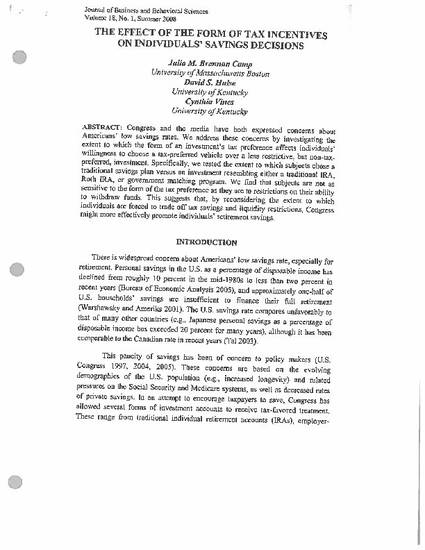
Congress and the media have both expressed concerns about Americans’ low savings rates. We address these concerns by investigating the extent to which the form of an investment’s tax preference affects individuals’ willingness to choose a tax-preferred vehicle over a less restrictive, but non-tax-preferred, investment. Specifically, we tested the extent to which subjects chose a traditional savings plan versus an investment resembling either a traditional IRA, Roth IRA, or government matching program. We find that subjects are not as sensitive to the form of the tax preference as they are to restrictions on their ability to withdraw funds. This suggests that, by reconsidering the extent to which individuals are forced to trade off tax savings and liquidity restrictions, Congress might more effectively promote individuals’ retirement savings.
- Accounting and
- Taxation
Available at: http://works.bepress.com/julia_camp/12/
